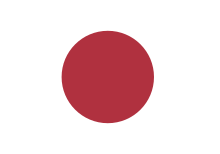| Japan at the 1958 Asian Games | |
|---|---|
 | |
| IOC code | JPN |
| NOC | Japanese Olympic Committee |
| in Tokyo 24 May 1958 - 1 June 1958 | |
| Medals Ranked 1st |
|
| Asian Games appearances (overview) | |
Japan participated and hosted the 1958 Asian Games held in the capital city of Tokyo. This country was ranked 1st with 67 gold medals, 41 silver medals and 30 bronze medals with a total of 138 medals to secure its top spot in the medal tally. [1]